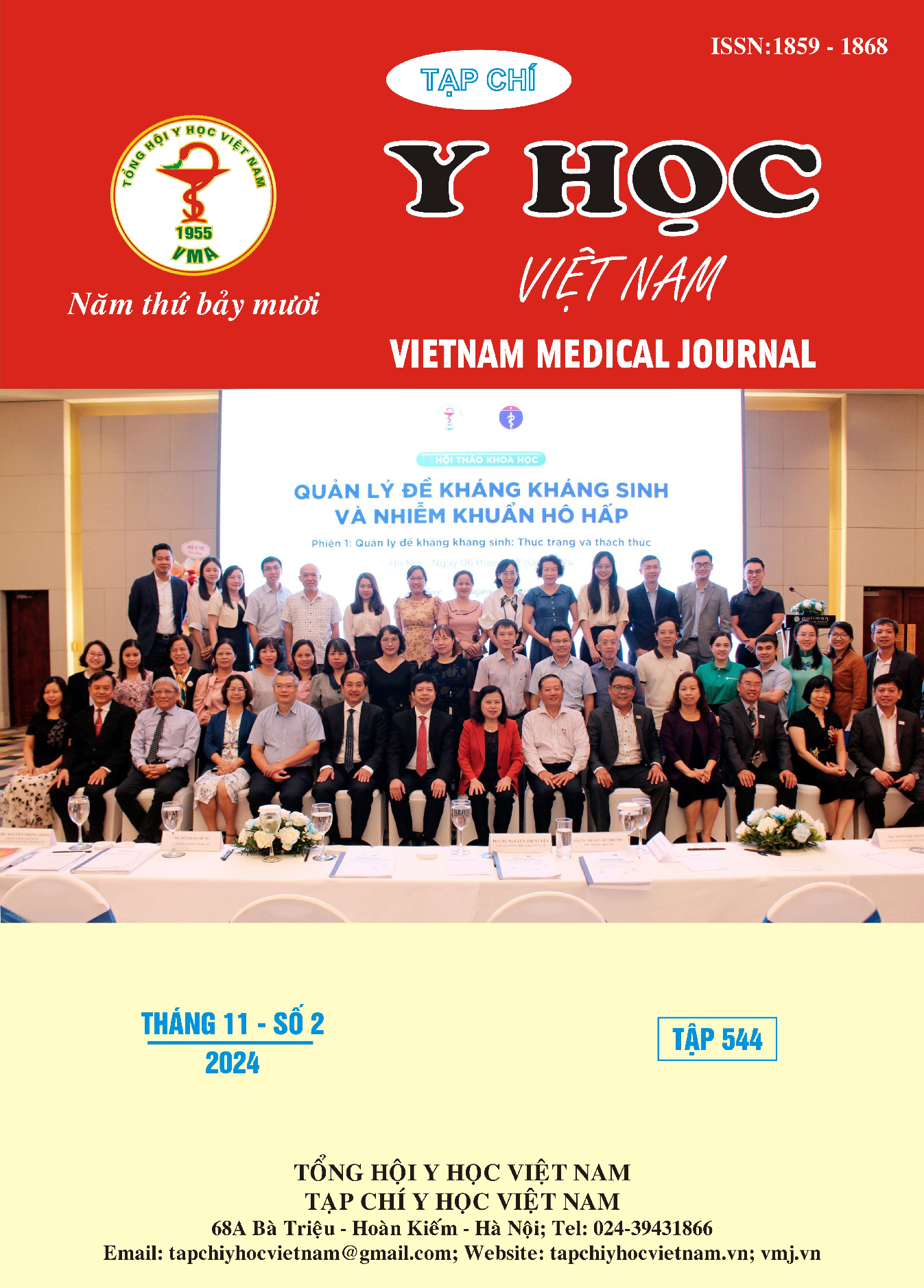PATHOLOGICAL CHARACTERISTICS OF PATIENTS WITH GASTROINTESTINAL STROMAL TUMOR IN THE SMALL INTESTINE AT CENTRAL MILITARY HOSPITAL 108
Main Article Content
Abstract
Objective: Review some pathological features of patients with gastrointestinal stromal tumors in the small intestine at Central Military Hospital 108. Methods: Cross-sectional descriptive study combining retrospective and prospective. Conducted on 33 patients diagnosed with gastrointestinal stromal tumors in the small intestine, treated surgically at Central Military Hospital 108 from January 2016 to May 2024. Results: The mean age was 59.0 ± 15.5 years; The most common age group is 30-69, accounting for 63.6%. The most common location of the tumor is in the jejunum, accounting for 60.6%. Pathological characteristics: macroscopic images of the tumor show that the majority of tumors have ulceration, bleeding (51.5%), crust (69.7%), and soft density (42.4%); the main color was pinkish white (45.5%). Tumor cytology showed that all tumors had spindle-shaped cells. Conclusion: Small intestinal GISTs often occur in the jejunum. The tumor is often soft in density, has a capsule, and has spindle-shaped cytology.
Article Details
Keywords
pathology, gastrointestinal stromal tumor, small intestine
References
2. Beltran M. A., Cruces K. S. (2007). Primary tumors of jejunum and ileum as a cause of intestinal obstruction: a case control study. International Journal of Surgery, 5(3): 183-191.
3. Diệp Bảo Tuấn (2016), Nghiên cứu chẩn đoán và điều trị bướu mô đệm đường tiêu hóa, Luận án tiến sĩ Y học, Trường đại học Y dược thành phố Hồ Chí Minh.
4. Prakash S., Sarran L., Socci N., et al. (2005). Gastrointestinal stromal tumors in children and young adults: a clinicopathologic, molecular, and genomic study of 15 cases and review of the literature. Journal of pediatric hematology/ oncology, 27(4): 179-187.
5. Casali P. G., Blay J. Y., Abecassis N., et al. (2022). Gastrointestinal stromal tumours: esmo–euracan–genturis Clinical Practice Guidelines for diagnosis, treatment and follow-up. Annals of oncology, 33(1): 20-33.
6. Crosby J. A., Catton C. N., Davis A., et al. (2001). Malignant gastrointestinal stromal tumors of the small intestine: a review of 50 cases from a prospective database. Annals of surgical oncology, 8: 50-59.
7. Tan C. B., Zhi W., Shahzad G., et al. (2012). Gastrointestinal stromal tumors: a review of case reports, diagnosis, treatment, and future directions. International Scholarly Research Notices, 2012(1): 595968.
8. Nguyễn Văn Mão (2011). Đặc điểm mô bệnh học và hóa mô miễn dịch u mô đệm dạ dày ruột ngoài ống tiêu hóa. Tạp chí Y dược học - Trường đại học Y dược Huế, 2: 65-71.


